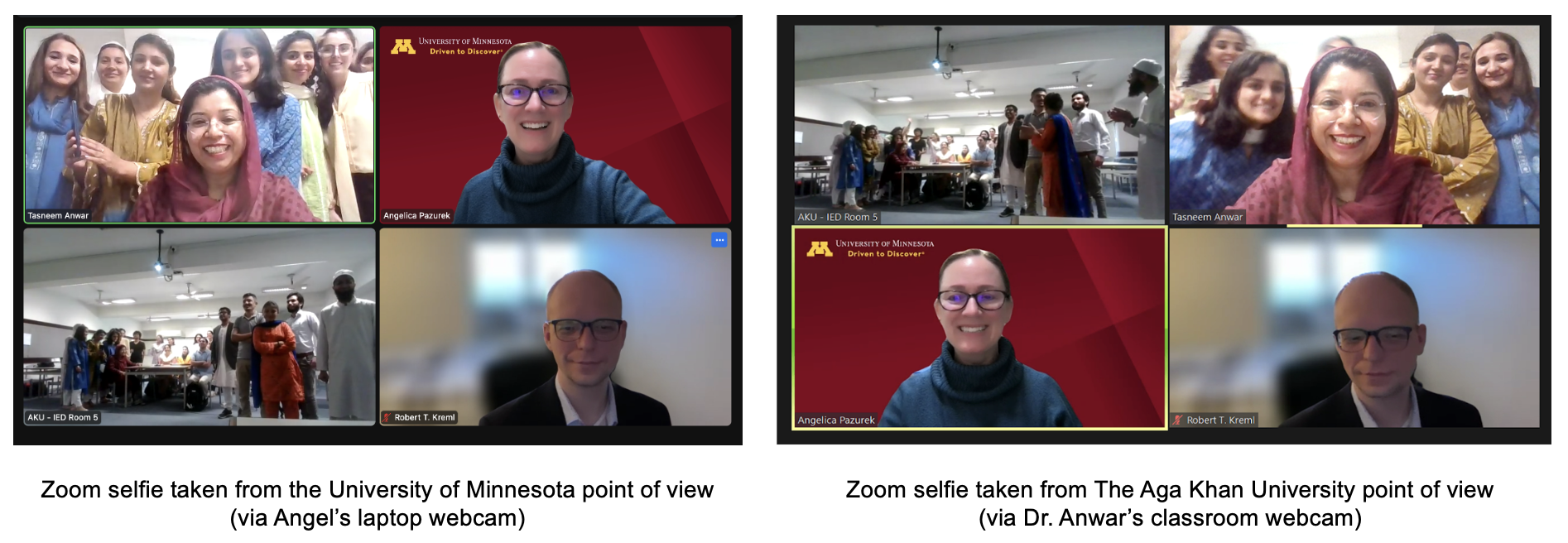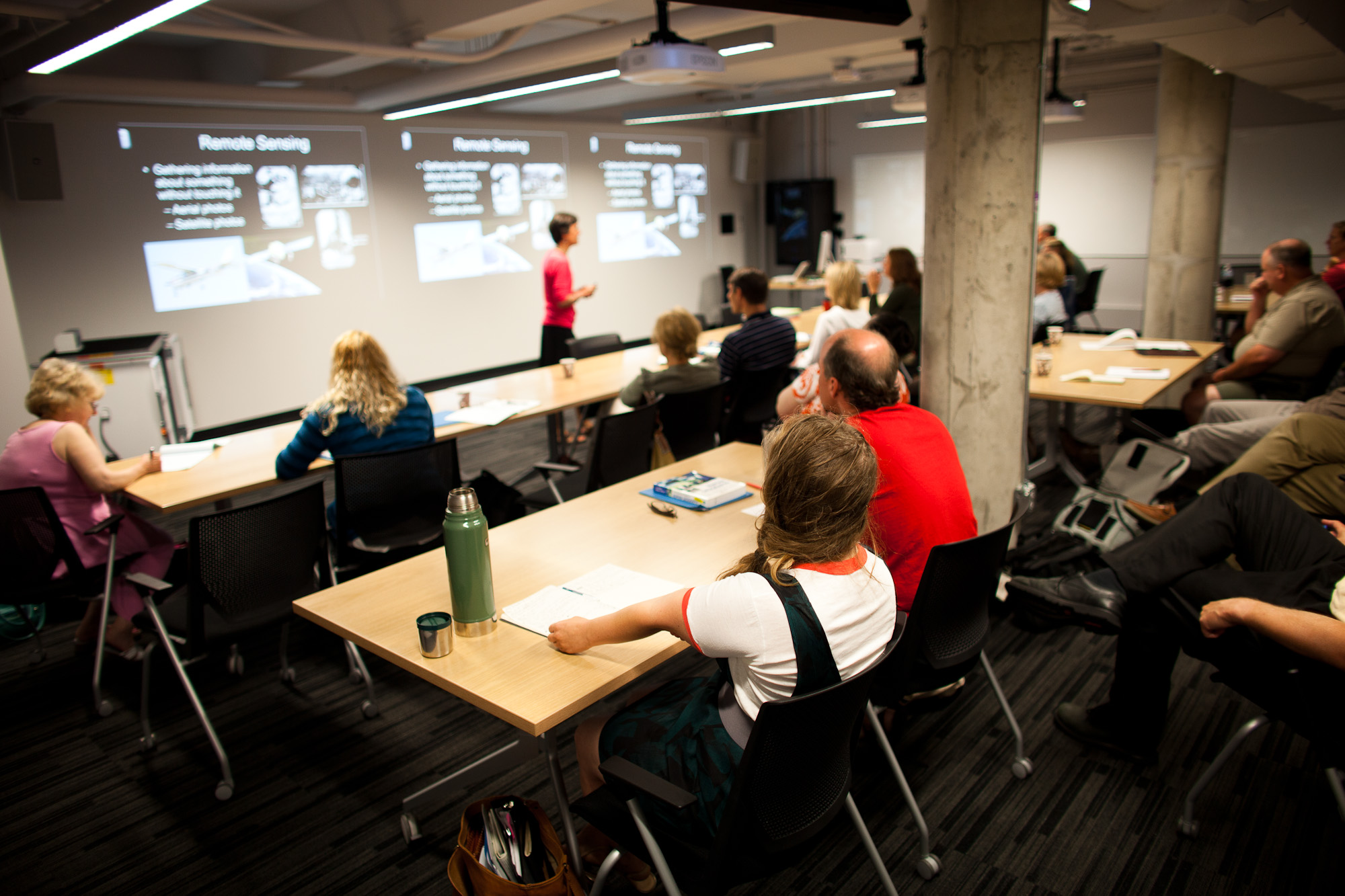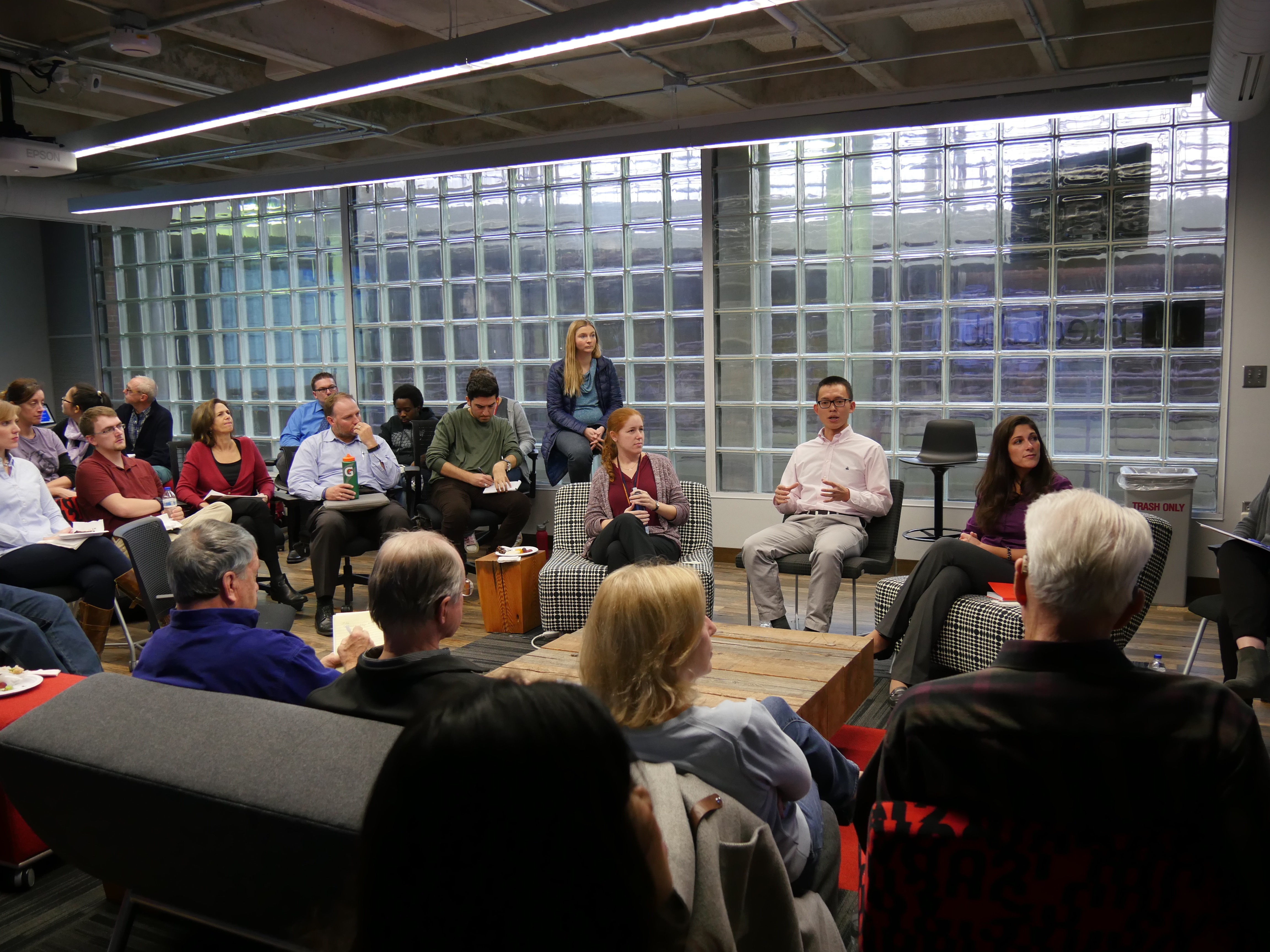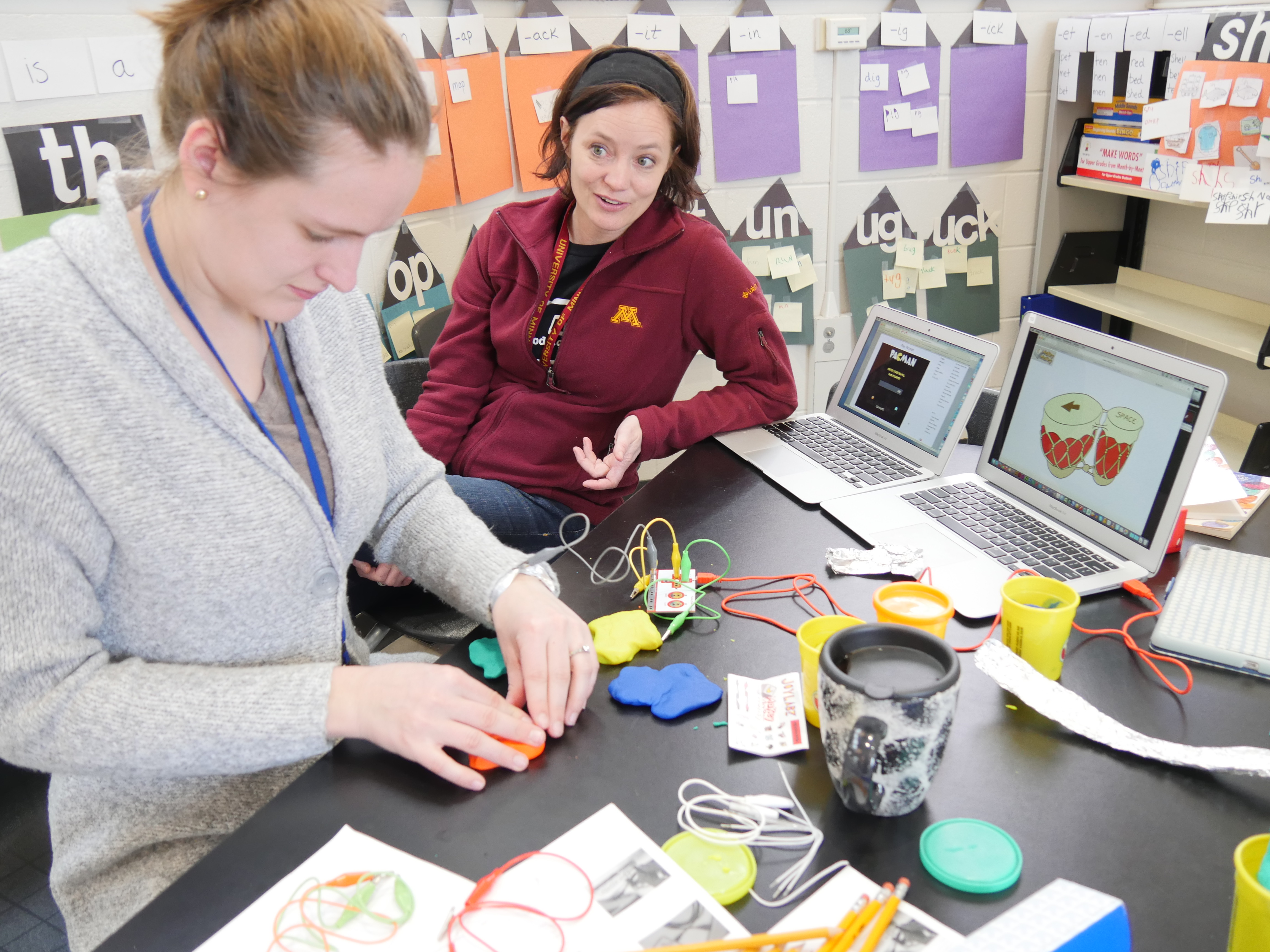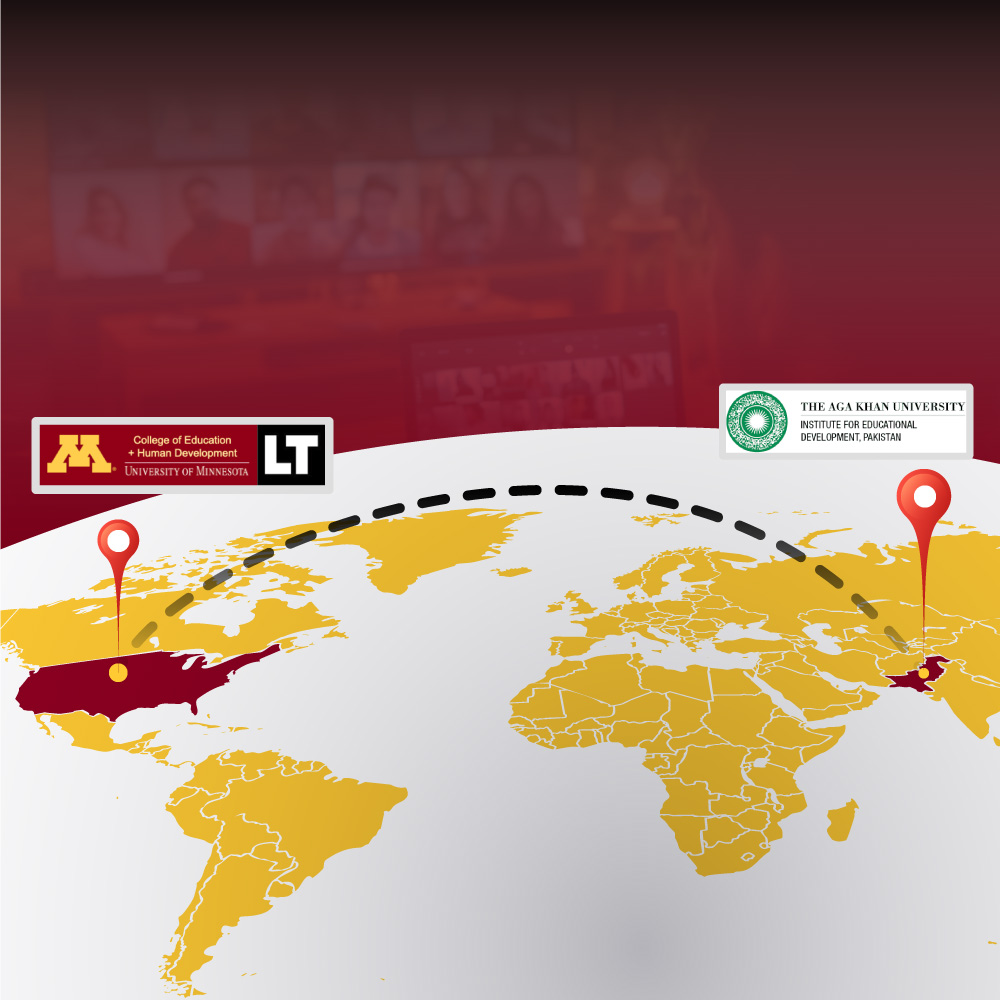
LT faculty member, Dr. Angel Pazurek, and Ph.D. candidate, Robert Kreml, were invited as international guest speakers in the graduate course, Qualitative Methods on Educational Research, in the Institute for Educational Development at The Aga Khan University (AKU-IED) in Karachi, Pakistan. They were generously welcomed by Dr. Tasneem Anwar, Assistant Professor of Science and STEM Education, who teaches this course for graduate students in the MPhil in Education program. Angel and Robert joined virtually with Dr. Anwar and her students in their local classroom on campus, using technology to bridge idea exchange as well as the 7,448 mile distance and 10-hour time difference between the University of Minnesota in Saint Paul and The Aga Khan University in Karachi. Karachi is the largest city in Pakistan with a population over 20 million people, ranking it the 12th largest city in the world. It is located along the coast of the Arabian Sea, at the southern tip of the country in the Province of Sindh.

In their presentation titled, "Phenomenology: A Contemplative Study of Human Experience," Angel and Robert introduced phenomenology as both a philosophical tradition as well as an educational research methodology. This was followed by generative discussions and "Zoom selfies" from two different points of view. AKU-IED students raised astute questions about employing phenomenological concepts and practices in ways that ensure rigor and quality in educational research. They also asked questions about how researchers can effectively acknowledge the influence of their own backgrounds, worldviews, and inherent biases in the interpretation of participants' lived experiences. Students were additionally interested in how the "subject" is defined within contemporary critical or postmodern phenomenologies, considering the historical versus ahistorical perspectives of subjectivity as well as the concomitant "subject-object" relationship.
The Aga Khan University was founded in 1983 as Pakistan’s first private university. It has main campuses in the city of Karachi as well as global campuses in Kenya, Tanzania, Uganda, Afghanistan, and the U.K. While AKU started as a health sciences university, it later established highly respected programs in many other areas, including teacher education. It currently has 3,671 students and 854 faculty members. According to its website, “The mission of the Aga Khan University (AKU) is to improve the quality of life in the developing world and beyond through world-class teaching, research and health-care delivery. The University educates students about local and global leadership, generates new knowledge to solve problems that affect millions of people, and raises standards and aspirations in the countries in which it works. We empower women and the disadvantaged, build support for pluralism, and collaborate with local partners and world-renowned organizations to achieve shared goals.” The AKU Institute for Educational Development website states that their aim is to “shape exemplary educators, managers, researchers, and policymakers to enhance education quality” and their mission “extends to generating transformative knowledge, implementing innovative school improvement models in underserved areas, and adhering to global teaching, research, and service standards.”
